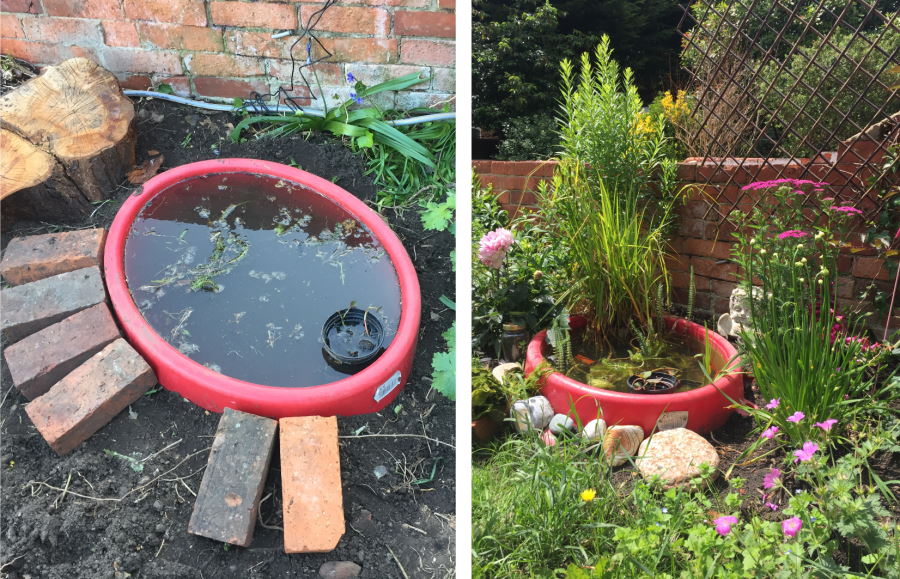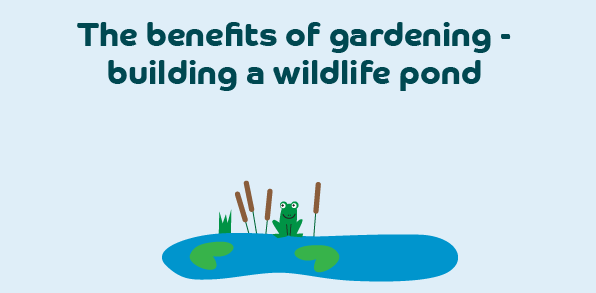At the beginning of lockdown, thanks to the removal of two large
trees and the effects of winter, our garden was nothing more than
a long strip of bare earth. At a time when it felt that the whole
world had swung off balance, I needed a simple project to focus
on, to bring order and sanity to those unprecedented days. And so,
our wildlife pond came into being.
Hauling my daughter’s old plastic sandpit from the back of the
shed, we dug a hole and sunk it in to the ground. In lockdown, a
new sense of community sprang up on our street, and over the next
few days, daily walks had a purpose: to collect handfuls of
pond-weed from neighbours I’d never previously met. With
Christmas-morning magic, muddy bags containing reeds and flag iris
roots were left on our doorstep.
And gradually, the pond quite literally came to life. Now, damsel
flies and dragonflies visit in abundance. Birds, wasps and bees
rest on plants for a drink. The bottom of the pond is alive with
the wiggling and scurrying of myriad invertebrates. And the icing
on the cake? A tiny baby newt, glimpsed just twice, feasting on
mosquito larvae.
Before and after. Emily's lockdown pond in April 2020, and
today:

You can create your own wildlife pond in something as simple as an
old washing up bowl.
Read the Royal Horticultural Society’s guide.






